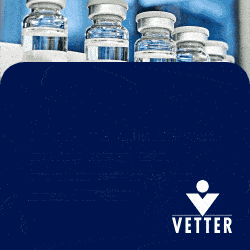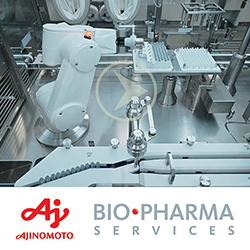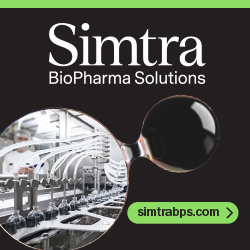12/20/2011
Enlight Biosciences Forms Lucrative New Partnerships
Enlight Biosciences LLC recently announced today it has formed new partnerships with AstraZeneca and Novo Nordisk. As partners in Enlight, AstraZeneca and Novo Nordisk will have the opportunity to collaborate and invest in the development of potentially transformational technologies with application to their therapeutic programs. Enlight was created by PureTech Ventures in partnership with major pharmaceutical companies and academic luminaries to proactively address critical unmet industry needs.
“One of the keys to the success of Enlight is the rich dialogue between our network of scientific and clinical experts together with our pharmaceutical partners,” said Enlight’s CEO Michelle Browner, PhD. “We will greatly benefit from contributions of AstraZeneca and Novo Nordisk to this excellent group of industry and academic leaders.”
“This partnership reflects AstraZeneca’s commitment to accessing and fostering innovation that exists outside of our own labs,” added Menelas Pangalos, Executive Vice President, Innovative Medicines, AstraZeneca. “Enlight provides a unique opportunity for AstraZeneca and MedImmune, our biologics arm, to collaborate with our peers and contribute to the development of tools that will fundamentally enhance R&D across the industry.”
“At Novo Nordisk, we apply our unique combination of skills in protein engineering and expression, formulation, and delivery to enhance the quality of care and bring new treatment options to patients,” said Mads Krogsgaard Thomsen, Executive Vice President and CSO at Novo Nordisk. “Through our participation in Enlight, we will be able to actively support the advancement of innovative ideas while proactively addressing the needs of our expanding global R&D organization.”
Enlight’s innovations are drawn from academic laboratories, start-ups, and ideas generated internally by the Enlight team, including a scientific advisory board led by Nobel Laureate Dr. H. Robert Horvitz. Enlight is focused on areas that include molecular imaging, biologics, and drug formulation and delivery methods, as well as novel chemistries and production technologies, biomarkers, and drug safety. Hundreds of technology opportunities are evaluated each year, with only the top one or two selected to become actively managed programs.
Since its founding in 2008, Enlight has publicly announced the formation of two companies Entrega and Endra and in addition, has several companies that have not yet been publically announced. Entrega is developing a proprietary delivery technology to enable the oral administration of proteins, peptides, and difficult-to-deliver small molecules. Endra has commercialized a breakthrough preclinical imaging technology that combines the properties of lightbased (optical) imaging with ultrasound to enable advanced live-animal imaging for preclinical research.
Covidien Plans Spin-off of Pharmaceuticals Business
Covidien plc, a leading global provider of healthcare products, recently announced it plans to spin off its pharmaceuticals business into a stand-alone public company. Covidien’s pharmaceuticals business is one of the world’s largest producers of bulk acetaminophen, the largest
In addition, Covidien’s pharmaceuticals business is one of the world’s leading suppliers of generators used to produce technetium-99m, a critical diagnostic medical isotope. It also is the only manufacturer that offers a fully integrated system of diagnostic contrast media in prefilled syringes and injectors.
“We’ve evaluated whether to separate these businesses for several years, due to the major differences between the medical products and pharmaceutical industries. We believe that now is the right time to do so because we have significantly improved the operations, performance, and pipeline of our pharmaceuticals business,” said José E. Almeida, President and CEO. “While both businesses hold industry-leading positions, they have distinctly different business models, sales channels, customers, capital requirements, and talent bases. In addition, their respective innovation pipelines differ substantially in length, regulatory approval requirements, possible risks, and potential returns. This transaction, if completed, would give both businesses greater flexibility to focus on and pursue their respective growth strategies, while potentially providing shareholders with greater value over the longer term.”
If a spin-off is executed, the resulting Covidien medical products business would have annual sales of approximately $9.6 billion (based on 2011 reported sales), about evenly split between the
Covidien’s pharmaceuticals business currently generates approximately $2 billion in annual sales, with about two-thirds derived from the
Ezose Sciences Forms New Biomarker Agreement With Merck
Ezose Sciences Inc. recently announced it has entered an agreement with Merck, through a subsidiary, to collaborate on biomarker discovery research in the field of diabetes. The collaboration seeks to identify glycans, the complex carbohydrate component of glycoproteins, which can play a role in health and disease.
The research will make use of Ezose’s proprietary GlycanMap technology platform and focus on the identification of changes in glycan patterns on post-translationally modified proteins from human subjects. This work will build on a series of collaborative studies previously conducted with Merck. Financial terms and other details were not disclosed.
“Ezose is committed to enabling the adoption of glycomics into everyday biomedical research, including the important field of biomarker discovery,” said Kiyoshi Nagata, PhD, Chairman and CEO of Ezose. “We look forward to continuing our work with Merck.”
Glycomics is the study of glycans, the sugar chains that during the biochemical process known as glycosylation become attached to many proteins expressed by human cells. The particular glycans involved may crucially determine the function of the resulting glycoprotein and its role in health and disease. Glycomics is a natural complement to genomics and proteomics, but it has traditionally been hindered by the lack of practical high-throughput and quantitative technologies. Ezose’s proprietary GlycanMap platform addresses this need by combining, in an automated 96-well format, high-throughput glycan enrichment with specialized MALDI-TOF mass spectrometry and custom bioinformatics to both structurally identify and quantitate glycans present in complex biological samples. Such glycans can serve as novel biomarkers to aid in the development of drugs, vaccines, and diagnostic tests, including companion diagnostics. In addition, glycomics holds potential for uncovering new therapeutic targets and mechanisms and for guiding the development and manufacture of glycosylated biologics and biosimilars.
Ezose Sciences Inc., based in
DSM Signs Capsules Contract With QRxPharma
DSM Pharmaceutical Products, the custom manufacturing business of Royal DSM N.V., recently announced the signing of a manufacturing and supply agreement with QRxPharma, Inc., based in
The agreement covers the production of MoxDuo Capsules, an immediate-release Dual Opioid pain therapy composed of a patented 3:2 fixed ratio combination of morphine and oxycodone by DSM, who will supply commercial volumes upon marketing approval. DSM operates a 1.5-million-sq-ft finished dosage facility in
“We are honored to be working with QRxPharma for the supply of this product,” said Hans Engels, President, DSM Pharmaceuticals, Inc. “Combining the expertise of QRx in developing innovative medicines with DSM’s strength in Good Manufacturing Practices (GMP), enforced by the US FDA, and supply chain management will provide a superior solution for patients.”
QRxPharma, Inc. is a clinical-stage specialty pharmaceutical company focused on the development and commercialization of new treatments for pain management and central nervoussystem (CNS) disorders.
“We have had a very productive relationship with DSM over the years as we evolved MoxDuo Capsules through to New Drug Application (NDA) filing, and we are now looking forward to launching our product into the acute pain marketplace in the US in 2012 with the manufacturing support of DSM,” added Dr. John Holaday, Managing Director and CEO of QRxPharma.
Pulmatrix Presents iSPERSE Data for Inhaled Combination Therapies
Pulmatrix recently announced that its iSPERSE inhaled drug platform demonstrated multi-drug delivery capability and superiority over conventional lactose blending for an effective therapeutic dose of the active ingredients in Advair, salmeterol, and fluticasone, as well as an additional anticholinergic bronchodilator. These preclinical data highlight the capability of iSPERSE, a proprietary salt formulation inhaled as a dry powder, to efficiently deliver consistent double- and triple-combination drug doses across a broad range of flow rates, which offers the potential of improved drug efficacy and safety for patients having both normal and lower or impaired lung function.
“iSPERSE shows tremendous promise as a superior platform for the pulmonary delivery of a broad range of therapies, including small and large drug molecules as well as multi-drug combination formulations, and therefore opens the potential for improved patient outcomes,” said Robert Langer, Professor of Chemical and Biomedical Engineering at the Massachusetts Institute of Technology, a Founder of Pulmatrix and a member of Pulmatrix’s Scientific Advisory Board. “The possibility of increased drug payload and higher delivery efficiency with flow rate independence offers advantages that other dry powder platforms do not have.”
In the in vitro and preclinical studies, an iSPERSE fluticasone and salmeterol combination was matched to commercially available Advair Diskus, which contains the fluticasone and salmeterol combination blended with lactose to enable pulmonary delivery. A triple iSPERSE combination of Advair components and an additional anticholinergic bronchodilator was also demonstrated. Highlights from these data include the following:
iSPERSE demonstrated improved delivery efficiency over Advair Diskus, as iSPERSE was shown to deliver over 2 times more lung dose of the active pharmaceutical ingredients than Advair Diskus. This improved delivery efficiency may offer two primary benefits: reduced off-target drug exposure and oral deposition, which potentially could reduce side effects, such as thrush (oral candida) and other infections and reduced nominal dose (dose sparing), which lowers cost of goods.
iSPERSE showed flow rate independent performance in terms of dose and particle size distribution, which could enable iSPERSE applicability across a broad range of patient populations, expanding applications beyond patients with normal lung function to also include those having lower or impaired lung function, including pediatric, elderly, and those with compromised lung function. iSPERSE behaved flow rate independently at flow rates of 28.3 and 60.0 LPM, maintaining a similar fine particle fraction when tested via actuation from a capsule-based passive dry powder inhaler.
The iSPERSE particle size distribution that would reach the lungs is consistent with an Advair Diskus particle size distribution (MMAD between 3.1 and 3.2 mm for iSPERSE comparable to 3.0 mm for Advair Diskus).
iSPERSE showed excellent agreement in size distribution for both drugs (fluticasone and salmeterol) and, even with the addition of a third drug, iSPERSE was able to maintain comparable size distribution, flow rate independence, and other powder properties desirable for inhaled delivery.
Consistent delivery of dual and triple combination components was achieved, with all components of iSPERSE in both dual and triple combinations retaining expected in vivo activity, as demonstrated by reduced lung inflammation and airway hyper-responsiveness in a murine model of allergic asthma (ovalbumin (OVA) model).
“iSPERSE offers a significant advancement in dry powder inhaled drug delivery technology for both new drugs and branded generics, solving delivery problems other first- and second-generation dry powder technologies cannot,” said David Edwards, Professor of Biomedical Engineering at
Pulmatrix is now advancing a number of proprietary iSPERSE drug formulation candidates, including small molecules, combinations, and biologics, in a variety of therapeutic areas, including chronic obstructive pulmonary disease (COPD), cystic fibrosis, asthma, idiopathic pulmonary fibrosis (IPF), and non-CF bronchiectasis, as well as pursuing partnerships for iSPERSE.
iSPERSE is a novel inhaled dry powder delivery platform developed by Pulmatrix for use in the delivery of drugs via inhalation for local or systemic applications. iSPERSE uses a delivery matrix containing proprietary cationic salt formulations to create a robust and flexible platform that can accommodate low or high drug loads in highly dispersible particles, yielding drug delivery capabilities not feasible with conventional dry powder technologies that rely on the use of lactose blending or low-density particles. The properties of iSPERSE have meaningful therapeutic and patient benefits, including the potential for single formulations with multiple drugs, effective inhaled drug delivery to patients with normal or impaired lung function, and the use of simple and convenient inhaler devices. iSPERSE offers the potential of a strong safety profile, as, in addition to drug and drug molecules, iSPERSE dry powders comprise exclusively generally regarded as safe (GRAS) salts and small quantities of additional, safe excipients if needed. iSPERSE powders are made via a straightforward, proven one-step spray-drying process capable of high and consistent yields.
ProJect Pharmaceutics Introduces Predictive Formulation Analytics for Optimized Biopharmaceutical Formulations
Protein drug formulation is particularly challenging due to structural complexity and instability. The biological activity of most recombinant proteins emanates specifically from their three-dimensional structure, which needs to remain unaltered throughout the shelf-life of the product. However, cleavage or aggregation incidents may not only reduce efficacy but also produce adverse immunologic effects.
The current industry standard for the formulation development of biopharmaceutical drugs is a time consuming, trial-and-error driven process that requires accelerated stability testing to identify the best out of many formulation alternatives. Occasionally, the large number of formulation options is tested by means of high throughput screening, yet accepting the potential drawback of a highly artificial testing environment. Predictive Formulation Analytics from ProJect Pharmaceutics offers an innovative scientific approach for designing optimized protein formulations and reduces the need for extensive stability testing.
Plying state-of-the-art analytical methods to characterize the physicochemical state of proteins and analyze their response to certain excipients allows the company to quickly and reliably identify promising formulation candidates.
The stability of proteins in solution is mainly determined by intramolecular and intermolecular interactions. Intramolecular stability is characterized by protein thermodynamics, which are measured by means of nano differencial scanning calorimetry (nanoDSC). Intermolecular stability is represented by the attractive or repulsive interaction between protein molecules, which is quantified via composition gradient static light scattering (2nd virial coefficient).
A systematic algorithm based on design of experiments (DOE)is used to determine the most favorable composition for the native structure of a given protein with regard to its intra- and intermolecular physicochemical properties. Beneficial effects resulting from pH value, ionic strength, ion types, detergents, and other stabilizing agents can be identified and quantified without stability testing.
The data obtained from the company’s research provide the basis for a drug product composition that is tailored to the protein, its packaging system, and its application. A final stability test program, carried out on samples filled into the final packaging system under genuine pharmaceutical manufacturing conditions, serves to confirm the suitability and stability of the composition and provides trustworthy data for initiating clinical trials.
ProJect Pharmaceutics, based in Martinsried/Munich,
Total Page Views: 1364

















